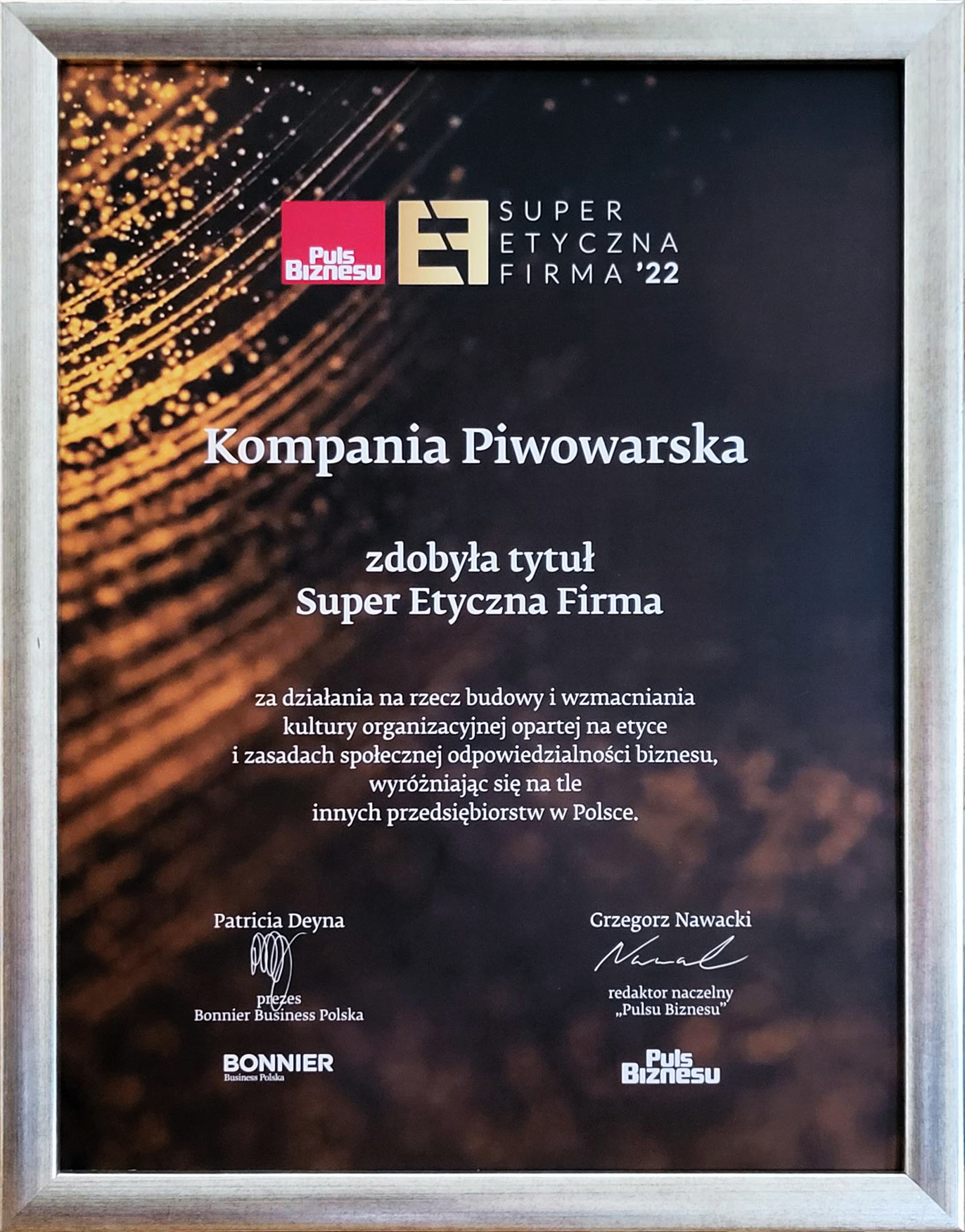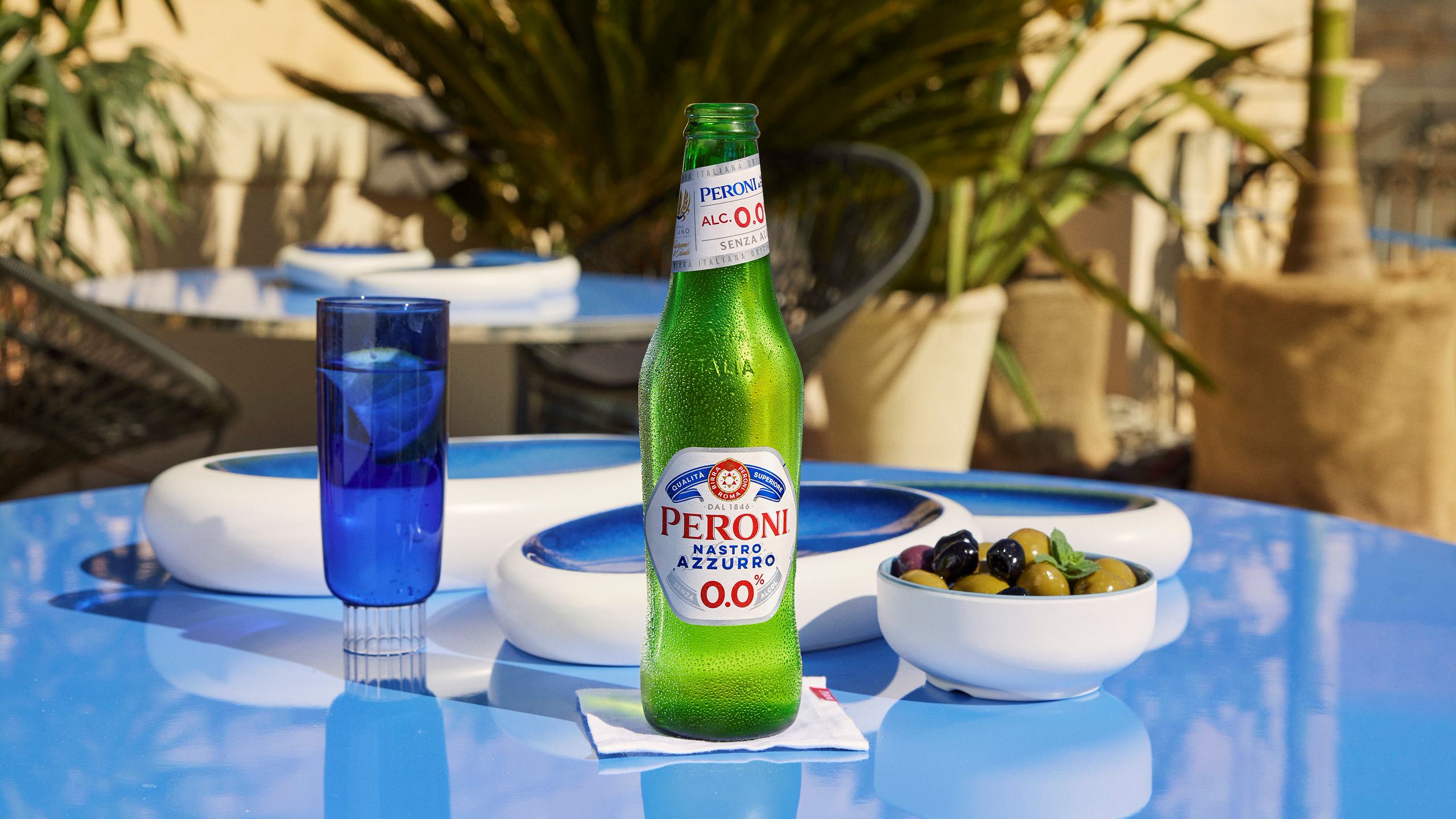Kompania Piwowarska (part of Asahi Europe & International) has been recognised as a “Super Ethical Company” by the Polish “Puls Biznesu” daily newspaper for the second time. The company was recognized for its overall activity in line with the principles of ethical business and the best market practices. It had already been awarded the same title in 2020, as the only representative of the food and beverage industry. The title is reserved for the companies that have been named “Ethical Company” three years in a row.
The organizer of the competition noticed Kompania Piwowarska’s efforts to build and strengthen an organizational culture based on ethics and principles of corporate social responsibility, which stand out against the activities of other businesses in Poland. The “Super Ethical Company” title is a tribute to Kompania Piwowarska’s employees. With their behaviour, integrity and commitment in their approach to customers, consumers and suppliers, concern about the environment and other people, and especially the local communities we operate in, they build an organizational culture based on ethics, creating meaningful connections – said Beata Zduńczyk-Golędzinowska, Corporate Affairs Manager at Kompania Piwowarska, accepting the distinction.
The ninth edition of the contest saw 94 submissions. 48 companies advanced to the second stage. The titles were awarded in two categories: “Ethical Company”, where 14 businesses were honoured, and “Super Ethical Company” with 11 winners. Additionally, 5 highest scored companies were named “Ethics Leaders”. The group of winners encompassed representatives of almost every industry. The awarded businesses base their daily operations on their code of ethics.
While making business decisions, Kompania Piwowarska applies its own value system described in the Code of Ethics. The beer producer actively prevents irresponsible consumption of alcohol through self-regulatory activities, non-statutory restrictions regarding beer advertising and labelling packages with signs warning against consumption of alcohol by drivers, pregnant women and minors. Ethical conduct is essential for the company also internally, as proven by the Code of Ethics presented to every new employee, so they know what kind of behaviour is expected of them. Other documents specifying what constitutes ethical behavior include the company’s anti-corruption policy, workplace violence, mobbing, discrimination and harassment prevention policy, confidential information and clear desk policy, and whistleblowing policy.
The titles have been awarded by the “Puls Biznesu” daily since 2014 for the best examples of ethical behavior. The main competition criteria are ethics and integrity, i.e. compliance with the law and norms of ethics.
Discover more at: Etyczna Firma (pb.pl)







